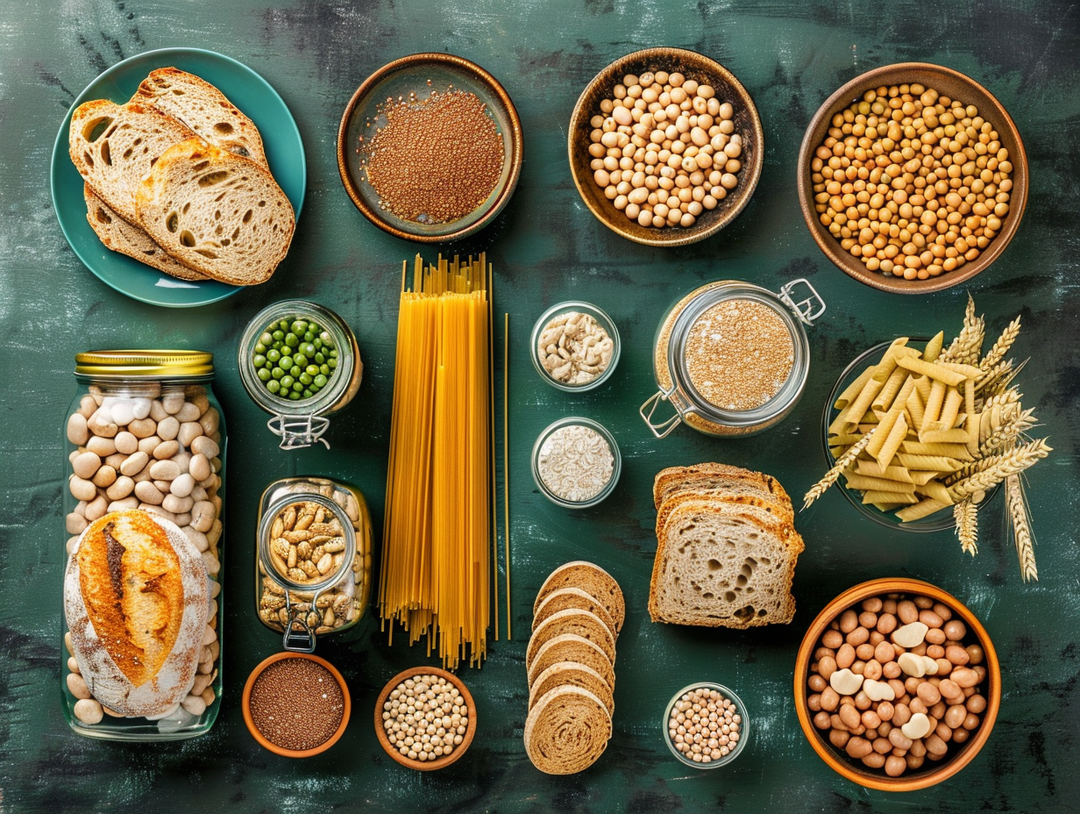Start your journey here
Make positive changes to your daily diet and health, find a test thats right for you.
Whilst there are a number of different types of sugar, the most commonly used in homes and in the manufacturing of pre-packaged foods is table sugar or granulated sugar. Our food test for sugar intolerance tests for this intolerance. Granulated sugar is often used in the home as a sweetener in beverages such as coffee or tea, or on cereals or as an ingredient in baking or cooking. It is used extensively in the production of processed food and drink as a sweetener and a preservative; fizzy drinks, cordial, sweets, chocolate, bread, baked goods, cereal, muesli, granola, flavored yogurt, flavored milk, low-fat products, sauces, salad dressing, soups and processed meals.
Cutting sugar out of the daily diet has been greatly facilitated by the many products in grocery stores and online, which are sugar-free. There are also many products now, which are made using ‘natural’ sweeteners like dates, stevia, coconut sugar, honey or maple syrup. Of the ‘natural’ sweeteners, stevia is the one, which is suitable for diabetics and those on a ketogenic diet. The easiest way to cut sugar from the daily diet is to eat a whole food diet, which contains no processed or pre-packaged food.
Table sugar, as a carbohydrate, is just sugars and beyond this does not provide any other nutrition. Natural sugar alternatives are still sugar (with the exception of stevia), but they offer the benefit of providing small amounts of vitamins and minerals where the average granulated sugar does not. Natural sugar alternatives also offer small amounts of antioxidants, B vitamins, potassium, phosphorous, iron, zinc, copper and manganese. Using dates can also boost the fibre content of a recipe.
Our food sensitivity tests are carried out using bioresonance therapy and is categorised under Complementary and Alternative Medicines (CAMs) which covers a wide range of therapies that fall outside mainstream medicine. Tests and related information provided do not make a medical diagnosis nor is it intended to be a substitute for professional medical advice, diagnosis or treatment.
Always seek the advice of your doctor or other qualified health provider if you have a medical condition or with any questions you may have regarding a medical condition and/or medical symptoms.
Whilst it is possible for the body to develop a sensitivity or intolerance to any food or drink item there are certainly those, which are very common.

Caffeine intolerance can trigger symptoms like insomnia and headaches. Learn more about caffeine and how to cope with a caffeine intolerance.

Whilst it is possible for the body to develop a sensitivity or intolerance to any food or drink item there are certainly those, which are very common.

Eggs are the produce of chickens and ducks. Most commonly it is chicken eggs, which are sold and used in processed products. Eggs can come in many forms, boiled, poached, fried, scrambled and omelette. They are also used in baking, mayonnaise, custard, mousse, margarine, meringue and ice cream. Eggs can be separated into egg white and egg yolk, sometimes only part of the egg is used.

Fish intolerance can trigger symptoms like bloating, stomach cramps and headaches. Learn more about fish intolerance, fish allergies and the differences between them here.

Gluten is the name given to a protein found in all wheat, rye, barley and oat products. It acts like a binder in food, giving it elasticity and a springy feel. It is found in all produce which uses wheat, rye, barley or oats such as bread and bread products, pasta, biscuits, crackers, cereal, muesli, cakes and pastries. It can also be found in beer, ale, lager, soups and processed products.

Do you difficulty digestiving food and drink containing lactose?

Whilst it is possible for the body to develop a sensitivity or intolerance to any food or drink item there are certainly those, which are very common.

Wheat is found in items using wheat flour or the wheat grain itself such as bread and bread products, pasta, biscuits, crackers, cereal, cakes and pastry products. It is also often used as a thickener so can be found in soups, sauces, stews and processed meals. It can also be found in beer, ale and lager.

Yeast is a fungus, which feeds on sugars. It is used in the baking of products like bread. It may also be found in pastries, biscuits, crackers, cereals, stock cubes and alcohol, such as beer and cider.